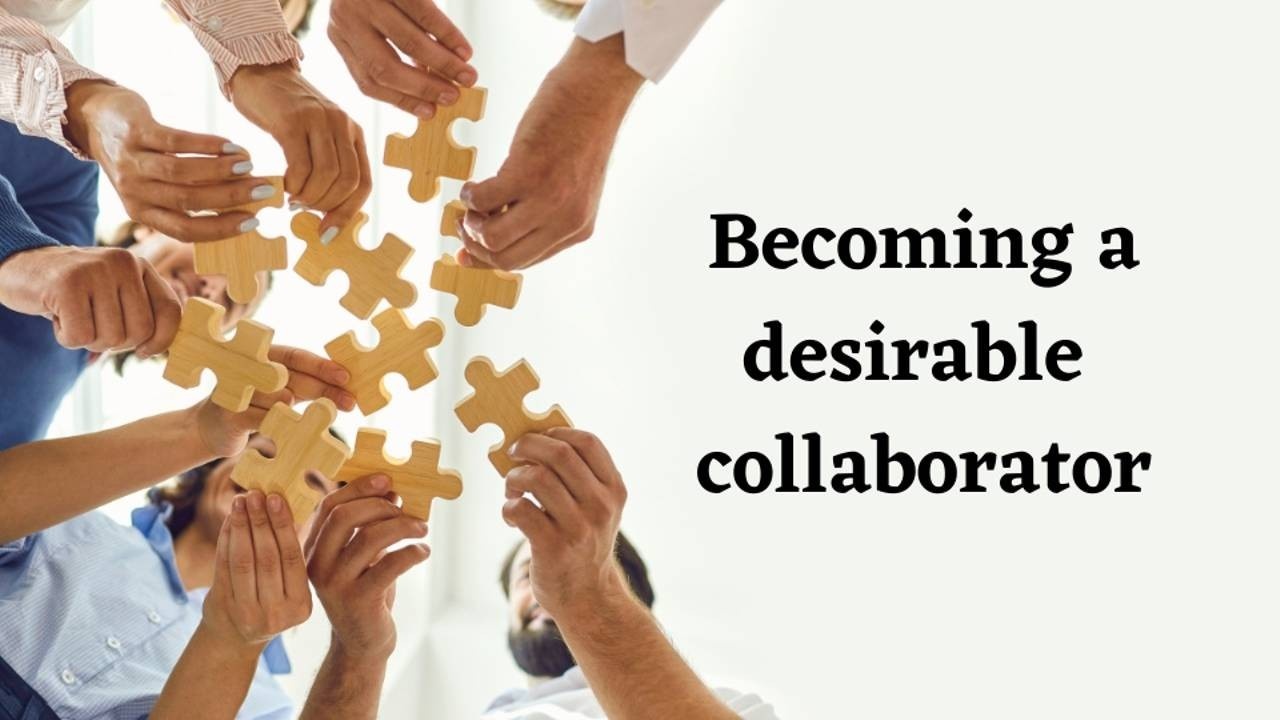Becoming A Desirable Collaborator

Musicians are trained to execute their performances perfectly. It requires hours and hours of dedicated solitary practice. Composers too spend most of their time alone. Being alone can make collaborating creatively uncomfortable and unfamiliar. What makes us good at what we do can become a liability in a collaborative environment. Here are a couple of tips to help you transition into becoming someone who attracts collaborators.
Nobody likes to be embarrassed. Creative people tend to avoid criticism because it can be a blow to our ego, our self-worth, our self-doubt. We may not even be aware that our insecurities, our fragile self-worth can push us into reacting to criticism defensively. Or, push us under a rock so we don’t have to deal with uncomfortable thoughts. Am I good enough? What do you mean I’m not as good as I think I am? Don’t you know my way is the RIGHT way?
Criticism and differing opinions are a part of life. If 10 people witnessed an accident there is a good chance you would discover that each person had a different experience of the same event. Odds are there would be some agreement but there would also be disagreement as well. This applies to creative collaborations as well. Each collaborator will have a different opinion and different set of life experiences that shapes their views. Therein lies the beauty and power of collaboration.
“The whole is greater than the sum of its parts”
- Aristotle
If you can listen to differing points of view objectively then the possibility exists for you to contribute constructively without succumbing to an “I’m right you’re wrong” defensive posture. This may seem risky but actually it's not IF you remember that whatever is being said isn’t an attack on you personally. It’s just a different point of view based on the experiences of the other person. Maybe they have a point? Maybe you agree? Maybe you don’t?
Keep your goal in sight.
One of the amazing things about effective leaders is their ability to listen. And I mean really listen so they can relate to the other person. Most of us listen waiting to respond. That isn’t listening. That is your ego waiting to be validated.
Collaboration Tip:
Be clear about your purpose.
Creative minds spew out lots of ideas. This can be helpful but only if the end goal is firmly in mind. Without knowing exactly what it is you are trying to achieve a collaborative effort can easily run off the rails. This is true if you work in groups or work alone.
Why is it important for successful collaborations to keep the end goal in mind?
A defined purpose, or goal, gives everyone involved a way to judge whether or not an idea helps or inhibits progress. A defined purpose can also act as a buffer when you feel a need to defend your position. A defined purpose can be used to defuse an emotionally charged situation. For example: the quickest way to quell an argument is to agree with the other person. Once the emotional charge is released then you can both get back to trying to move the work forward.
Having a set of skills that helps you stay on track will make you a valued collaborator, a person people will seek out to work with. Why? Because you know how to listen you will be able to acknowledge your collaborator’s opinions and gain their trust.
Trust is the currency of intimacy. Intimacy creates stronger relationships. Stronger relationships create effective collaborations. Getting the best out of yourself and your collaborators isn’t difficult or mysterious. Listen, acknowledge and remove the need to be “right” and you’ll find it’s actually easier than you’d think.
Download your copy of my free Ebook: "Finding Your Way Forward"
Get your FREE copy of my personal branding ebook "What's Your Story" (and other goodies)




